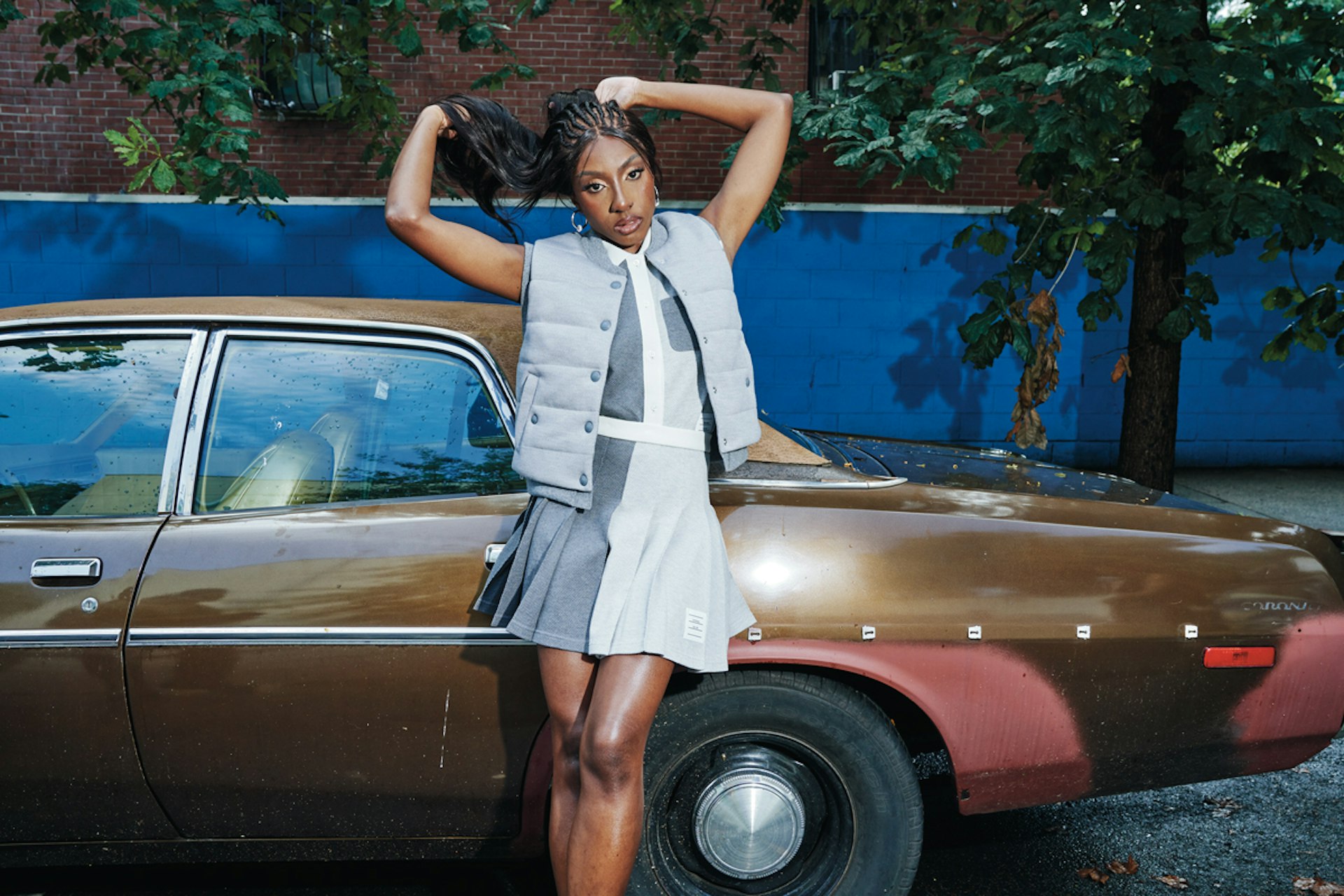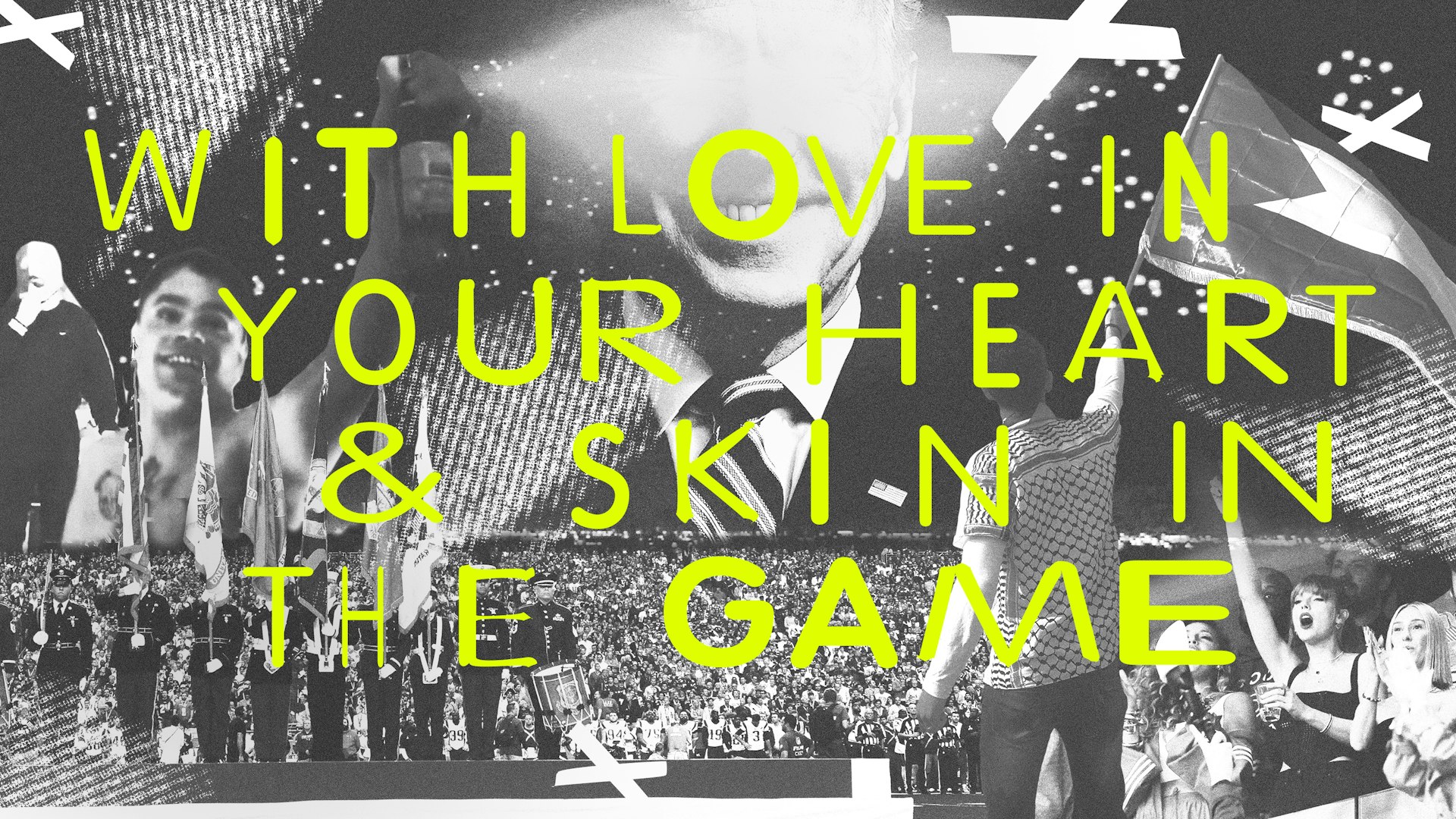
With love in your heart and skin in the game: Huck’s February 2024 Newsletter
- Text by Emma Garland
- Illustrations by Kay Ogundimu
Hi, I’m Emma Garland, former Digital Editor of Huck and current writer about town. In this monthly digest I’ll be dealing with some of the biggest cultural issues of the moment – from the flailing state of the creative industries and how they’re being reshaped by technology, to the relationship between art and activism in an age when everything is politics. Let’s have it.
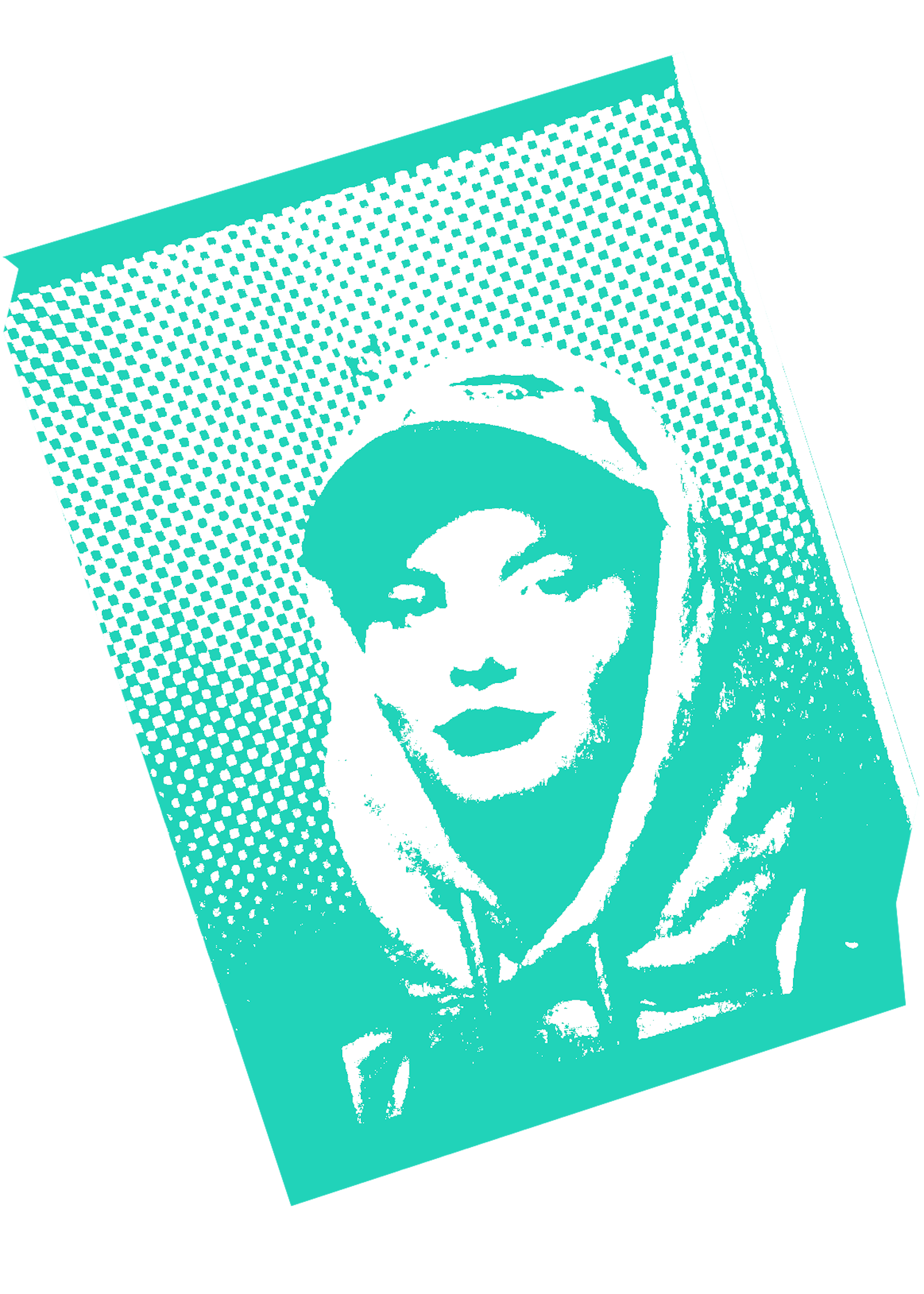
In 2017, I found myself at a Super Bowl party in Brooklyn. It was a few weeks after Donald Trump’s inauguration and the national mood was, let’s say, “bad.” An ambient mixture of shellshock and dread hung in the air, but the new timeline, our current timeline, hadn’t properly set in yet. Things still felt relatively endurable. Tall boys, blunts, and chicken wings were passed around. Someone came dressed as the Left Shark. At the end of the opening ceremony, a silence fell in the room and my friend Kyle made this deadpan joke that has haunted me ever since: “Ah, the drones are spelling Pepsi. Things are good in America.”
From our current vantage point, drones spelling Pepsi while a washed reality TV personality fondles the nuclear codes feels like child’s play as far as dissonance goes. At this stage – in politics, journalistic integrity, the history of the internet – reality isn’t just incoherent, it’s disintegrated. For instance, it was impossible to reconcile the way coverage of the Super Bowl ran alongside news of Israel’s unlawful assault on Rafah earlier this month.
This wasn’t just another case of social media becoming a meeting point for the jarring but distinctly separate spheres of ‘celebrity gossip’ and ‘war crimes.’ The Super Bowl is a pantomime of American patriotism in which the sickly relationship between politics and entertainment takes centre stage. Between football plays, Beyoncé launching her country era, and Usher performing “Love In This Club,” CBS granted space for a series of 30-second ads from the Israeli government. One called for “all the dads held in captivity” to be brought home. Another showed a packed stadium with the words: "In a roaring stadium, their silence is deafening. 136 people are still being held hostage by Hamas." Meanwhile, Israel carried out US-funded raids of one of the most densely populated areas on earth. The civilian death toll in Gaza is now nearly 30,000.
I’ve said it in this newsletter before, but the reports coming out of Palestine are so harrowing they obliterate a part of your soul just to read. There are 1 million refugees – at least half of Gaza’s population – crammed into Rafah, which Israel carpet bombed despite advising hundreds of thousands of displaced Palestinians to seek shelter there. Images circulated of dismembered bodies, snipers firing into overcrowded hospitals, children forced to endure horrors beyond comprehension. A six-year-old girl, Hind Rajab, was trapped alone among the bodies of her dead relatives after her family’s car came under fire. She pleaded with emergency services for hours only to be killed by Israeli forces along with the paramedics sent to rescue her. Two orphaned teens managed to get their seven siblings to Rafah, where they are living in a tent while Israel seems poised to launch a ground invasion of the city.
Stories like this are endless, and there will be more. There is nowhere left for people to go. “Rafah was the final destination for most people,” said Yousef Hammash of the Norwegian Refugee Council, sheltering in Rafah with his family. “The families that are here have fled four or five times now, and they are now locked between the Egyptian border and the Israeli tanks that are conducting ground operations in Khan Younis.”
“So yeah, if you’re searching for a voice of reason in these dark and violent times then I’m afraid it won't be found in the world’s highest political offices either.”
The fact that this isn’t, at the bare minimum, being condemned in the strongest possible terms by the US and UK only underscores how fragile and morally bankrupt our political model has become. It’s only now, with the last supposedly ‘safe’ area in Gaza under siege, that terms like “slaughter” and “genocide” are being quoted in the media to realistically describe what is and has been happening. Meanwhile, liberal politicians continue to falter. As Nesrine Malik put it in an op-ed for The Guardian, they “express unequivocal support for Israel’s actions while also expressing concern for civilians in Gaza.” The feedback loop perpetuates inaction while the numbers of the dead and displaced sky-rocket. “This dissonance is a product of attempting to reconcile an irreconcilable position,” Malik writes. “The facts are simply too stark for anyone to confront them while plausibly continuing to support Israel’s actions in Gaza.”
The Super Bowl is a spectacle that, like all sporting events, positions itself as a political vacuum while being anything but. The biggest American TV audience since the moon landing watched the Kansas City Chiefs and the San Francisco 49ers go at it, cheered on by a host of pop stars who, for the most part, have not spoken publicly about Israel or Palestine. I’m not even in the business of thinking celebrities should comment on current affairs; precious few people are waiting for Ice Spice, performer of the hot new single “Think U The Shit (Fart),” to come through with a scintillating take on geopolitics. But in this case the overwhelming silence from almost every contemporary American idol – compounded by a $7M advert about how silence breeds hatred, paid for by Patriots owner Robert Kraft, who regularly donates to Israeli lobbyists – feels beyond delusional.
What's even more insane is that, in the middle of all this, the social media accounts for noted POTUS Joe Biden, whose administration continues to sell and supply weapons to Israel while calling for an end to civilian deaths in Gaza, posted a image of him shooting red lasers from his eyes accompanied by the caption “Just like we drew it up.” So yeah, if you’re searching for a voice of reason in these dark and violent times then I’m afraid it won't be found in the world’s highest political offices either. When the self-appointed custodians of basic human rights have nothing to offer but lethal incoherence and memes, you would actually have more luck turning to someone like Taylor Swift, who has the power to shift the needle on social discourse if not actual policy… were she ever to speak.
As ever, none of this is happening in a vacuum. There’s an insistence on the separation of art and politics across the board, along with more measures clamping down on freedom of expression. Artists in Berlin are facing censorship and event cancellations as German authorities come down hard on expressions of Palestinian solidarity. In the UK, Arts Council England quietly updated its policies to warn that “overtly political or activist statements” could breach funding agreements. Meanwhile, Belfast rap trio Kneecap have accused the UK government of trying to “silence” them after it blocked their application for a British Phonographic Industry (BPI) funding award, seemingly over their anti-Union stance. The BPI board had already approved the funding and called the move “disappointing.” It fell to Trade Secretary, Kemi Badenoch, to say the quiet part out loud: “It’s hardly surprising that we don’t want to hand out UK taxpayers’ money to people that oppose the United Kingdom itself.” (Never mind that the Home Office has been using taxpayer money to pay TikTok influencers to create content deterring migrants from crossing the Channel…)
Clearly one of the fears in play is that art can and will affect how people think. It follows, then, that it does actually matter what artists say, and whether they choose to say anything at all – through their work or otherwise. Art is powerful. It’s a form of communication, comfort, education occasionally. When the creative industries – overrun by nepotism and financially incompatible with the cost of living as they already are – start to close ranks around the wealthy, it is a sign that here be monsters. All the best (by which I mean the most enduring) art is made with love in one’s heart and skin in the game. It’s a fight for relevance, now, between those who could speak but choose not to, and those who do speak and are repressed for it. Which way, Western history?

Emma: I saw a tweet the other day that did my head in. It was a cutesy joke about gamblers being addicted to hope, and it wasn’t that deep, but it made me despair how all social media platforms have become dumping grounds for meme-pilled, low-risk regurgitations of ideas that provide the foundations of so much great art. Unfortunately that art – which, a lot of the time, isn’t even obscure – is never shared or signalled to. Instead we’re spoon-fed the most flippant versions, for free, as content. All of which is to say: anyone would do well to read the late comedian Norm MacDonald’s incredible “non-memoir,” Based On A True Story. It's deliberately half-fabricated but contains some of the most beautiful writing ever committed to paper on (his very real) gambling addiction.
Josh (Print Editor): I’m going to go all nepo here with my book recommendation, but I worked hard on it so why shouldn’t I? Outside of Huck, I spent the last three and a half years making an oral history book of the infamous Dragon Bar that was open in Old Street, 1998-2008. Made with James-Lee Duffy, artist and co-founder of our art zine Pavement Licker, it is the only book to document the birth of the street art movement, and features contributions from the pioneers of street art, who sprayed and played there, including Banksy, Faile, INVADER, ELK, Mode 2, EINE, Lucie Flynn, CEPT, Sweet Toof, AIKO, James Jessop and many more. It wasn’t obvious at the time that the Dragon Bar in London’s Old Street was to be an era-defining place filled with decade-defining artists. The toilets were legendarily graffitied, there were block parties out the back and the gallery space upstairs was given to artists for free. And then it mysteriously burned down… you can cop it here and also keep an eye on the Huck site for Q&A between James and I..
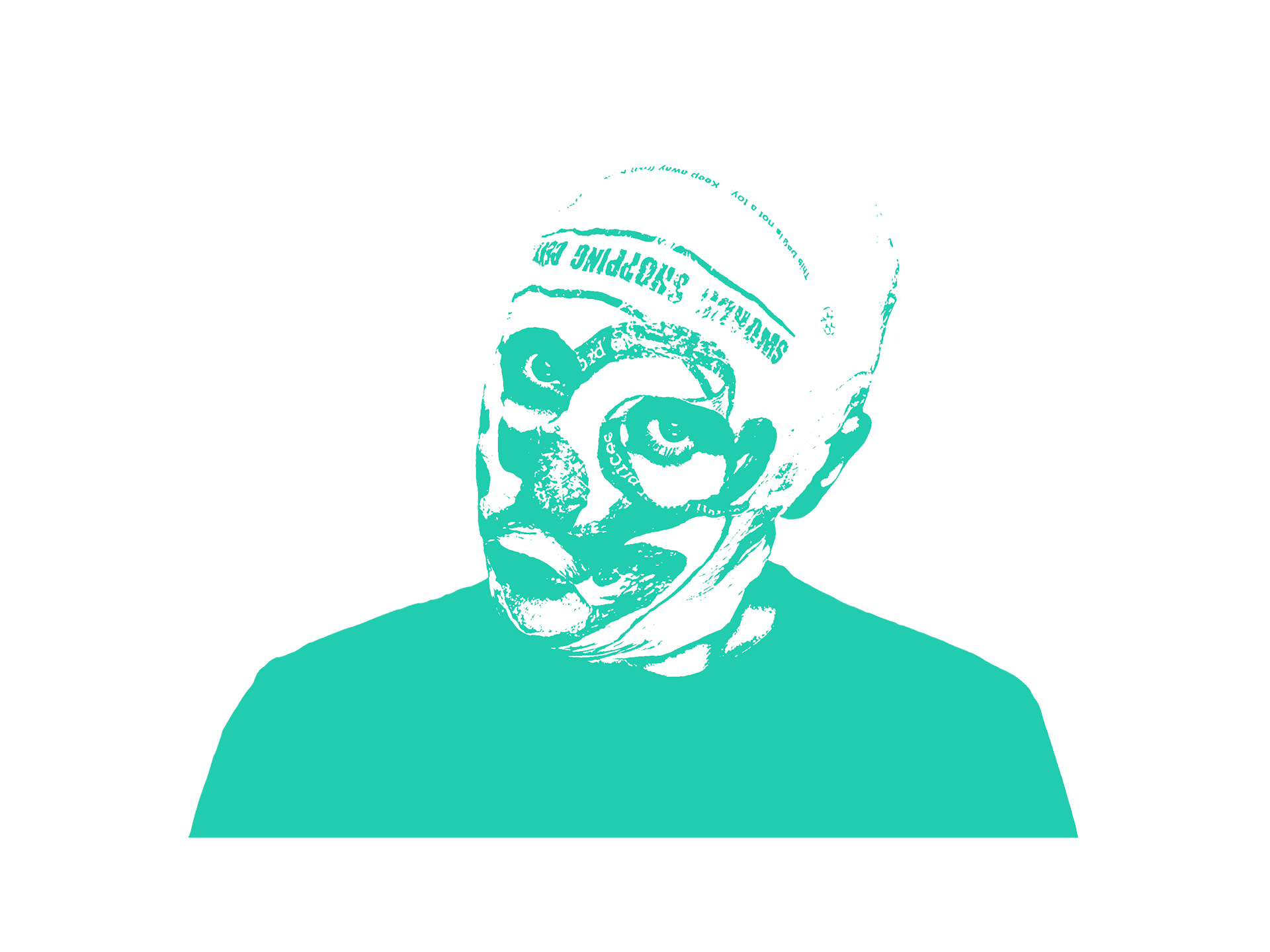
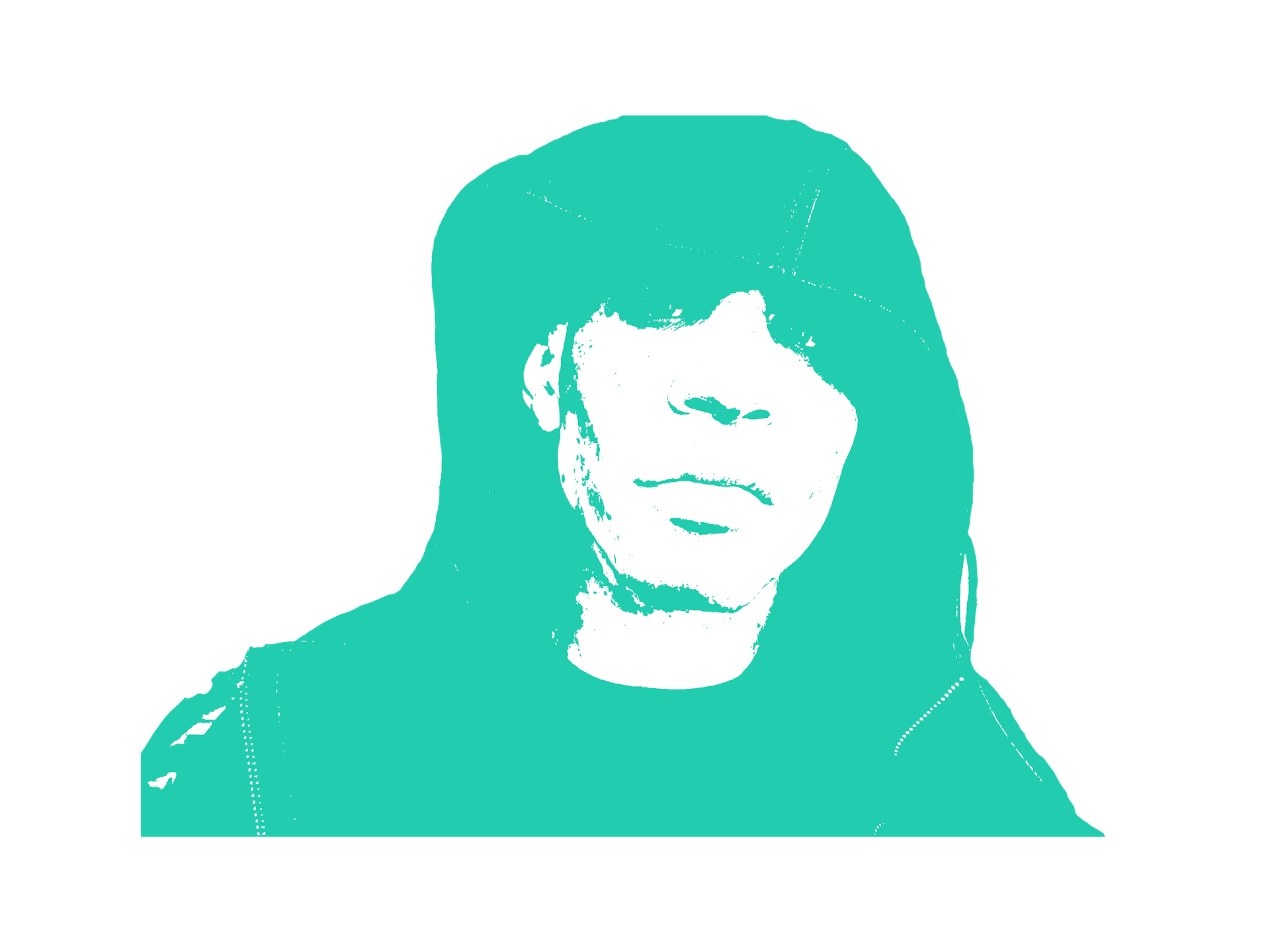
Isaac (Social Editor & Photography Writer): I’ve Never Been Here Before, the debut solo album from Erick the Architect – aka the producer of NYC hip-hop trio Flatbush Zombies – is very good. Across the 16 tracks there’s forward thinking, glitching sonics, a sprinkle of psych rock (‘Breaking Point’), and a star-studded lineup of features. Channel Tres, Lalah Hathaway, James Blake and Joey Bada$$ to name a handful. My personal highlight: ‘Leukemia / AM ft. Kimbra’ – a heartbreaking, cinematic breakup monologue that grieves the loss of a partner, but also touches on the passing of his mother, who forms the “spiritual influence” of the LP.
Andrea (Editor-in-chief): It was around mid November that things finally broke. I’d been sitting in my car for an hour - I was meant to be somewhere else but that’s where my body was so that’s where I stayed; a static vessel disconnected from a panicked brain. There’s no cure for this condition. It’s a symptom of our times as we continue to bear witness to the desecration of Palestinian life. There is, however, respite; and it comes when we connect.
I felt it that day, sitting zombie-like in my car, listening to journalist Mona Chalabi’s voice quiver while giving an interview on the Longform podcast. Since October, Chalabi has been using her one-of-a-kind brand of visual journalism, invented out of a frustration that she was constantly sidelined and ignored in the newsroom, to draw attention to the mainstream media’s silence, bias and wilful distortion (weapons of war, make no mistake) that have become a tentpole of Israeli impunity.
Her episode on Longform is absolutely devastating - it’s heartfelt, heartbreaking, full of panic and rage, which is exactly what this moment calls for. (Hold on till the end for a really delicious mic drop when she name-drops the worst offending editors).
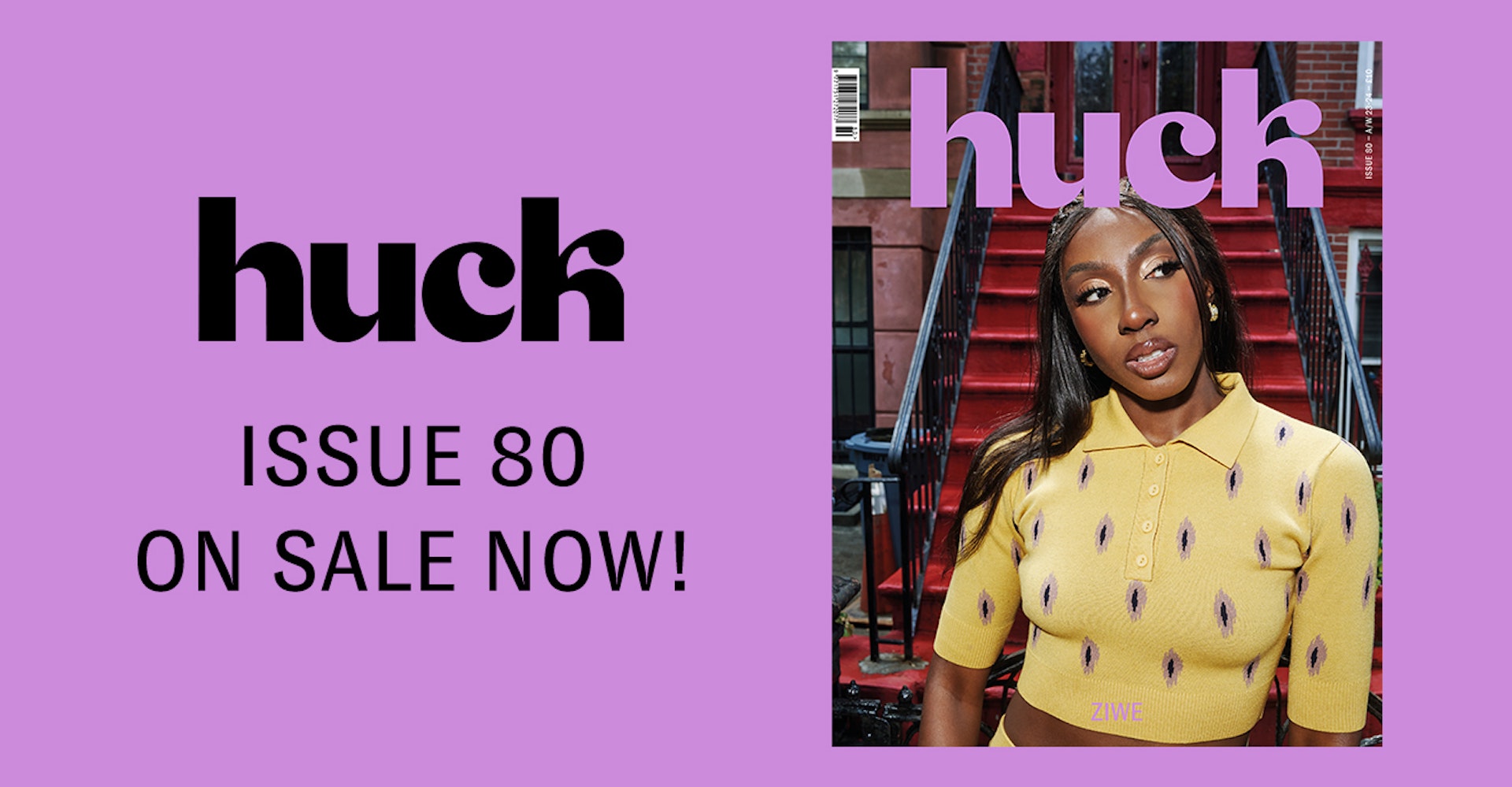
Grab yourself a copy of Huck 80 featuring Ziwe and so much more!
Sign up to the new Huck Newsletter to get a personal take on the state of media and pop culture from Emma Garland in your inbox every month.
Help ensure our future by becoming a member of Club Huck.

